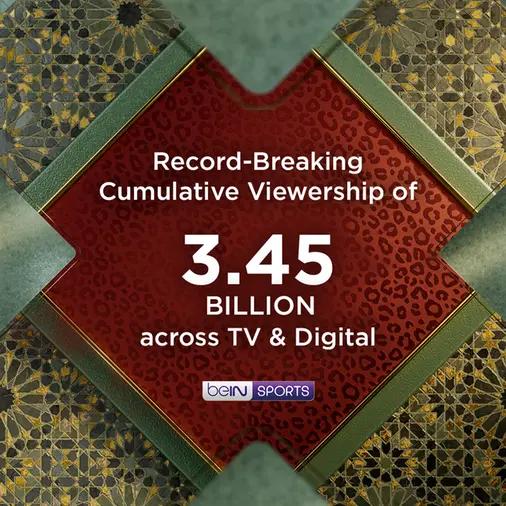Fitch Ratings - Hong Kong - 18 Jan 2022: Fitch Ratings has assigned Pakistan's proposed US-dollar sovereign global sukuk certificates, which will be issued through The Pakistan Global Sukuk Programme Company Limited, a 'B-' rating.
The Pakistan Global Sukuk Programme Company Limited is a legal entity in Pakistan and is the issuer and trustee of the sukuk, incorporated primarily for the purpose of participating in the sukuk transaction. It is wholly owned by Pakistan.
The rating is sensitive to any changes in Pakistan's Long-Term Foreign-Currency Issuer Default Rating (IDR), which Fitch affirmed at 'B-' with a Stable Outlook in May 2021.
KEY RATING DRIVERS
The certificates' rating is driven solely by Pakistan's IDR. This reflects Fitch's view that a default of these senior unsecured obligations would reflect a default of Pakistan, in accordance with Fitch's rating definitions.
We have not considered any underlying assets or collateral provided when assigning a rating to the sukuk, as we believe the issuer's ability to satisfy payments due on the certificates will ultimately depend on the Pakistan government satisfying its unsecured payment obligations to the issuer under the transaction documents described in the prospectus and other supplementary documents.
In addition to the government's propensity to ensure repayment of the sukuk, Fitch believes the government would also be required to ensure full and timely repayment of The Pakistan Global Sukuk Programme Company Limited's obligations due to its various roles and obligations under the sukuk structure and documentation, especially - but not limited to - the features below:
- On each periodic distribution date, Pakistan, acting as a lessee, will pay to the trustee an amount reflecting the rental payable in respect of the lease assets, which is intended to be sufficient to fund the periodic distribution amounts payable by the issuer under the certificates and shall be applied by the trustee for that purpose.
- On any dissolution event, the trustee will have the right to require the obligor, under the purchase undertaking, to purchase the lease assets from the trustee for an amount equal to the exercise price, intended to fund the dissolution distribution amount payable by the issuer under the certificates. The dissolution distribution amount equals (i) the outstanding face amount of such certificate; and (ii) all accrued and unpaid periodic distribution amounts in respect of such certificate, or other amount specified in the applicable pricing supplement as being payable upon the relevant dissolution date.
- In the event of total or partial loss, if there is a short fall from the insurance proceeds, the obligor will be required to pay for the shortfall directly to the transaction account unless the lease assets are replaced. A partial loss dissolution event shall constitute a government event, which in turn shall constitute a dissolution event.
- The payment obligations of the Pakistan government (acting in any capacity) under the transaction documents are direct, unconditional and unsecured obligations and rank pari passu with all other present and future unsecured and unsubordinated external indebtedness of the obligor.
The Pakistan Global Sukuk Programme Company Limited sukuk includes a negative pledge provision that is binding on the Pakistan government, as well as financial reporting obligations, covenants, government event and cross acceleration terms with external indebtedness. The documentation does not contain a change of control clause.
Certain aspects of the transaction will be governed by English law, while others will be governed by Pakistan law. Fitch does not express an opinion on whether the relevant transaction documents are enforceable under any applicable law. However, Fitch's rating for the certificates reflects our belief that the government will stand behind its obligations.
When assigning ratings to sukuk certificates, Fitch does not express an opinion on their compliance with sharia principles.
The following ESG issues represent key rating drivers for the sukuk; other key rating drivers can be found in the issuer rating action commentary dated 27 May 2021:
ESG - Governance: Pakistan has an ESG Relevance Score of '5' for both Political Stability and Rights, and the Rule of Law, Institutional and Regulatory Quality and Control of Corruption, as is the case for all sovereigns. These scores reflect the high weight that the World Bank Governance Indicators have in our proprietary Sovereign Rating Model. Pakistan has a low World Bank Governance Indicator ranking at 21.2, reflecting a history of volatile political transitions, domestic security incidents, weak institutional capacity, uneven application of the rule of law and a high level of corruption.
The rating on the sukuk is sensitive to any changes in the Long-Term Foreign-Currency IDR, which has the following rating sensitivities (as per the aforementioned issuer rating action commentary).
RATING SENSITIVITIESFactors that could, individually or collectively, lead to negative rating action/downgrade:
- External Finances: Indications of reduced access to external finance, leading to financing strains.
Factors that could, individually or collectively, lead to positive rating action/upgrade:
- External Finances: Continued implementation of policies sufficient to facilitate a rebuilding of FX reserves and ease external financing risks.
- Public Finances: Sustained fiscal consolidation, for instance, through a structural improvement in revenue sufficient to put the debt/GDP ratio on a downward trajectory over the medium term.
- Macro: Sustained improvements in the business environment that contribute to improved medium-term growth and export prospects.
BEST/WORST CASE RATING SCENARIO
International scale credit ratings of Sovereigns, Public Finance and Infrastructure issuers have a best-case rating upgrade scenario (defined as the 99th percentile of rating transitions, measured in a positive direction) of three notches over a three-year rating horizon; and a worst-case rating downgrade scenario (defined as the 99th percentile of rating transitions, measured in a negative direction) of three notches over three years. The complete span of best- and worst-case scenario credit ratings for all rating categories ranges from 'AAA' to 'D'. Best- and worst-case scenario credit ratings are based on historical performance. For more information about the methodology used to determine sector-specific best- and worst-case scenario credit ratings, visit https://www.fitchratings.com/site/re/10111579
REFERENCES FOR SUBSTANTIALLY MATERIAL SOURCE CITED AS KEY DRIVER OF RATING
The principal sources of information used in the analysis are described in the Applicable Criteria.
ESG CONSIDERATIONS
The ESG profile is in line with that of Pakistan.
For more information on our ESG Relevance Scores, visit www.fitchratings.com/esg
-Ends-
© Press Release 2022
Disclaimer: The contents of this press release was provided from an external third party provider. This website is not responsible for, and does not control, such external content. This content is provided on an “as is” and “as available” basis and has not been edited in any way. Neither this website nor our affiliates guarantee the accuracy of or endorse the views or opinions expressed in this press release.
The press release is provided for informational purposes only. The content does not provide tax, legal or investment advice or opinion regarding the suitability, value or profitability of any particular security, portfolio or investment strategy. Neither this website nor our affiliates shall be liable for any errors or inaccuracies in the content, or for any actions taken by you in reliance thereon. You expressly agree that your use of the information within this article is at your sole risk.
To the fullest extent permitted by applicable law, this website, its parent company, its subsidiaries, its affiliates and the respective shareholders, directors, officers, employees, agents, advertisers, content providers and licensors will not be liable (jointly or severally) to you for any direct, indirect, consequential, special, incidental, punitive or exemplary damages, including without limitation, lost profits, lost savings and lost revenues, whether in negligence, tort, contract or any other theory of liability, even if the parties have been advised of the possibility or could have foreseen any such damages.



















